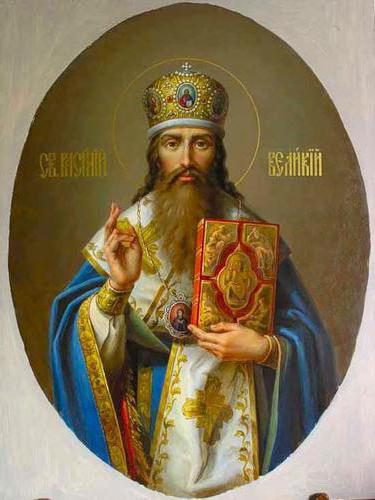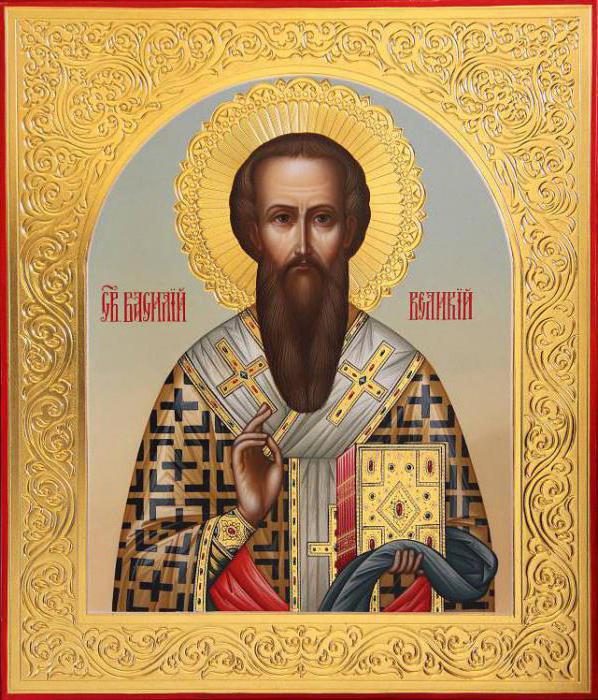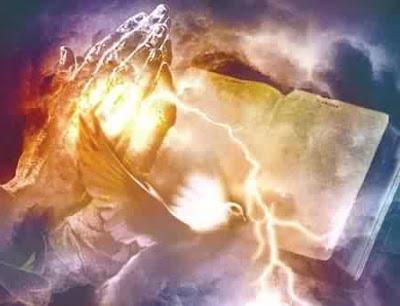Prayer to Basil the Great from desecration
Prayer to Basil the Great is one of the key in Orthodoxy. Believers ask the saint to protect them from desecration, to give them strength. Many after such appeals in the church gain a second wind in life.
Basil the Great

In prayer to Basil the Great, believers turn tofamous saint who lived in the IV century. He was the archbishop of Caesarea of Cappadocia in the territory of modern Turkey. And also a theologian and a church writer.
Together with Gregory the Theologian and Gregory of Nyssahe was one of the three Cappadocian Fathers of the Church. These are the saints, who at that time completed the dialectical processing of the Church dogma of the Holy Trinity.
It is to Basil the Great that the researchers attributethe invention of the iconostasis, and the compilation of the famous liturgy. He is the author of the prayers of the morning rule, which must be read by all Orthodox Christians. This is the first part of daily prayers, which all Orthodox Christians should say. They can be found in any prayer book. Many people know the prayers of Basil the Great according to his letters and sermons.
The life of the saint

It is for certain known that Basil the Great was bornin Caesarea. Today it is the ancient Turkish city of Kayseri. At that time it was a major administrative center of Cappadocia. His parents came from a noble and very rich family. And they were ardent followers of the Christian faith.
The grandfather and grandmother of the saint suffered in the beginning of IVcentury from the Great Persecutions against Christians, which were organized in the Roman Empire. Bishops were many of his relatives - uncle and even two brothers - Peter of Sevastia and Gregory of Nyssa. His sister - the famous Reverend Makrin, who took monastic vows, and according to some sources she was gifted with miracle work.
Vasily's father was an experienced lawyer and speaker. He wanted his son to follow the same path. As a result, Basil received a high-quality education in Constantinople and Caesarea itself. For some time he studied at the Academy of Athens. It was in this educational institution that he met and became friends with Gregory the Theologian. During this period, the future Roman emperor Julian the Apostate, who became the persecutor of Christians, was close to them.
Return to Caesarea

Turning with prayer to Basil the Great, manyremember how difficult his way of life to faith was. After returning from training, he devoted himself to secular pursuits. A strong influence was exerted on him by the Monk Makrin, who later became the abbot. It was she who led him to lead a more ascetic and restrained life.
In the end, with a few close comradesrenounced the city bustle to settle on the family lands in Ponte. This is an area in the northeast of Asia Minor. Here they arranged some sort of monastic community.
A sign in the life of the saint was the year 357, when he set off on a tour of the surrounding Coptic monasteries. Three years later, together with the bishops participated in the synod, held in Constantinople.
Support the teaching of Aria

A serious blow to the attitude of the hero of ourarticle was the decision of the cathedral, taken in Rimini. The council, convened by the Emperor Constantine I, decided to support the teaching of the Alexandrian priest Arius. The so-called Arianism was widespread among Christians in the fourth and sixth centuries. The main difference was that it affirmed the primacy of God the Son and his non-unity with God the Father.
In addition, Arianism was supported by the Bishop of Kesaia, Dianii. Therefore, for some time, Vasily and his comrades found themselves outside the official agenda of the Christian church.
Only shortly before his death, Diana Vasily with himreconciled. As a result, he became a presbyter and even an adviser to the new bishop Eusebius, who came to the throne after the death of Diana. But even here everything was not smooth. Strict asceticism did not suit Eusebius. Therefore, Basil retired, having retired to the desert. Turning with prayer to St. Basil the Great, many remember this episode of his biography, realizing how hard it was for him at that time.
In the desert, the hero of our article began to build a monastic life, which he always really secretly wanted.
Oppression of Orthodox

The next test, which had to move Vasily, was the increasing oppression of Orthodox Christians. They intensified after the coming to power of Emperor Valent.
Because of this, Bishop Eusebius began actively seeking support from the hero of our article. Prayer of St. Basil the Great was at that time particularly relevant.
In 365 the saint made a decision for himselfreturn to Caesarea. He took the leadership of the diocese in his own hands. Over the next few years, Vasily wrote several program works directed against Arianism. The main thing for him is the thesis "three hypostases in one essence". He was followed by the followers of the Nicene Creed, and those who became disillusioned with Arianism.
The entry of Basil into the office of bishopSome leaders of neighboring dioceses were opposed, but after Eusebius's death they actually had no alternative left. Having become head of the metropolia in Cappadocia, Basil the Great began zealously eradicating Arianism from Asia Minor. In many respects, his merit is that the century of this trend of Christianity was short-lived.
Anti-Arianism

The anti -arianism of Basil led to his encounters with Emperor Valent. For example, during the voyage of that one in Cappadocia, the bishop flatly refused to recognize him as rightful for the Arian doctrine.
Hearing this, Valent decided to divideCappadocia in two provinces, to significantly weaken power in the field. Ultimately, this led to the reduction of the canonical territory that was administered by Basil, undermined his strong position in the leadership of the church.
But even becoming weaker than it was a few years ago,the hero of our article managed to promote several of his bishops to key posts. Important posts were received by his close associates - Gregory the Theologian and Gregory of Nyssa. The most fierce struggle unfolded for the place of the bishop in Antioch. Vasili did not want to see the orthodox Pavlin as bishop. The candidacy of the latter was supported by the leader of the Alexandria Metropolia and even by Pope Damasius. The main fears of Basil were related to the fact that, carried away by the unity of God, you can quickly come to heresy.
Disease and death
The balance of power in the state is fundamentallychanged after Valenta's death. He was killed in the battle of Adrianople. This is a battle between the Goths and the Romans, led by Valentine. It happened in the year 378. The positions of Basil in the church leadership intensified. But he could not take advantage of this. By that time, his health was severely undermined by the ascetic way of life.
He died on January 1, 379. Soon was ranked as a saint.
Prayer for the desecration of Basil the Great
This prayer is considered one of the most important in Christianity. With her, the saint is often converted by Orthodox around the world.
In prayer to Saint Basil the Great, they ask himabout mercy, wish to be cleansed of sins and from any filth. Pray to the Lord, Jesus Christ and the Holy Spirit that the soul should be cleansed of darkness, ghosts and devil plantations. Prayer from the desecration of Saint Basil the Great helps to find spiritual strength, overcome the inner demons.
Believers promise that, having cleansed, they will live with a clear conscience, observing all the commandments, constantly visiting the temple.
</ p>




